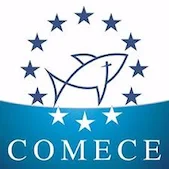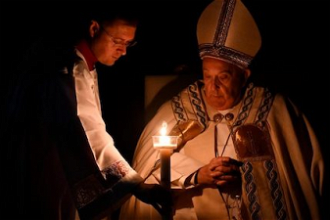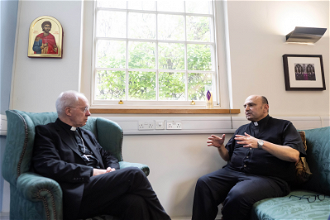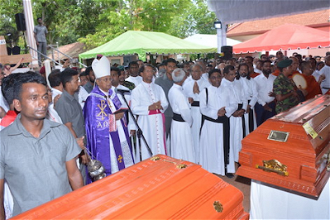EU Bishops concerned over draft rules on 'substances of human origin'

Source: COMECE
In a statement issued on Tuesday morning, the Commission of the Bishops' Conferences of the European Union (COMECE) and the Katholisches Büro in Berlin have expressed their deep concerns about a draft of the European Parliament's position on the regulation of so-called 'substances of human origin' (SoHO).
Emphasizing the Church's conviction that "human life from the beginning, including unborn life 'possesses its own dignity, right, and independent right of protection,'" the statement aims to draw attention to the consequences that would flow from the proposed regulation, in light of proposed amendments adopted by the European Parliament's Committee on Environment, Public Health and Food Safety (ENVI).
The need to intervene, the statement notes, is based in large part on the "unequivocal" fact that regulations adopted by the EU Parliament "will set the course for the future discussion regarding prenatal human life in European transplantation and pharmaceutical law and will thus influence the ongoing discussion on strengthening the EU Health Union and will raise numerous ethical and constitutional conflict issues in the EU Member States."
The COMECE statement highlighted the importance of recognizing that "human life is not just a 'substance of human origin'," and insisted on the need to distinguish between non-fertilized germ cells on the one hand, and embryos and fetuses on the other.
It noted that the SoHO regulations would place unborn human life on the same level as cells or other human tissue.
At the same time, EU Bishops expressed concern that SoHO regulations could override national law in Member States that value the protection of human life.
Further concerns included distinctions in the proposed regulations and amendments between embryos, fetuses, and born children; and between children conceived naturally and those created through medical intervention or in a laboratory.
The statement also expressed concern about the possibility of forced genetic testing and the possible "selection" of children in view of genetic diseases.
Such selection, the statement reads: "violates the human dignity", while mandatory genetic testing raises ethical questions about the right of self-determination of donor and recipient.
Finally, the COMECE statement insists that ethical decisions of EU Member States must be respected.
Member States, said the Bishops, must be able to regulate life issues in accord with their ethical principles, even if these deviate from the regulations adopted by the EU Parliament.





















